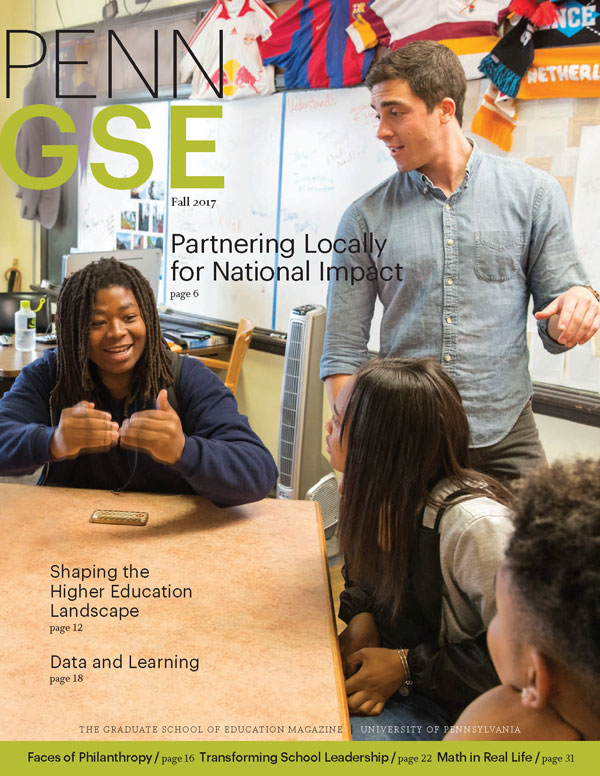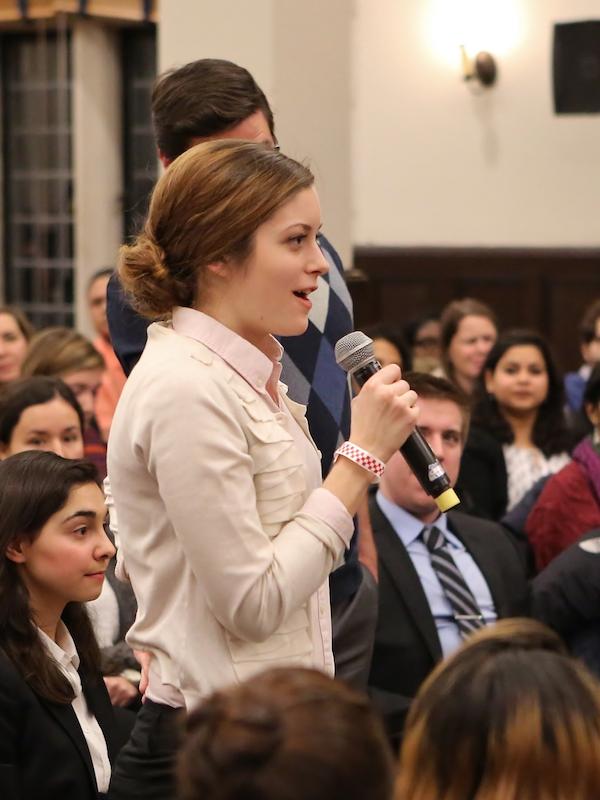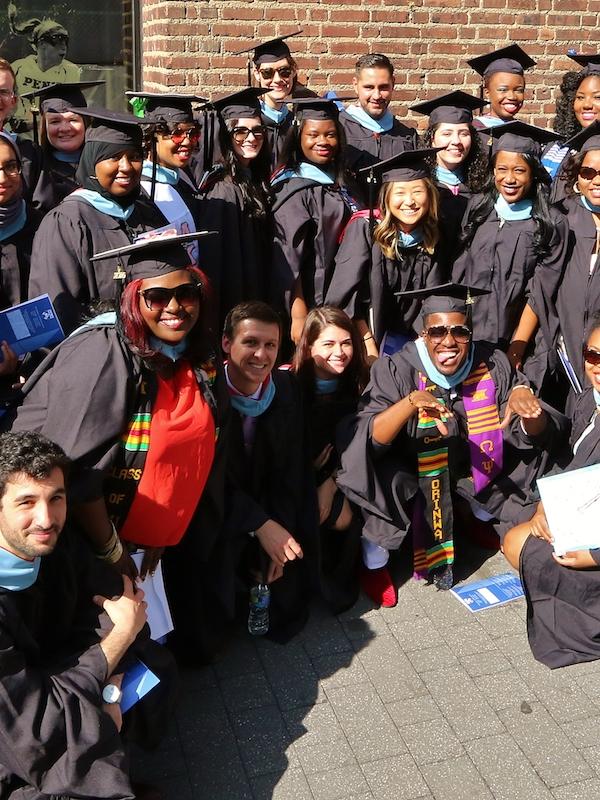Shaping the National Landscape: Penn GSE Produces College Presidents
by Lini S. Kadaba
Having produced forty-five college presidents as well as other top higher education leaders, Penn GSE’s nationally ranked Higher Education Division and its Executive Doctorate in Higher Education Management program play a significant role in the nation and beyond. Here, four alumni who have gone on to the top position at a college or university share their professional paths, accomplishments, and perspectives. Representing public, private, virtual, international, and minority-serving institutions, these alumni reveal varied career routes and a shared commitment to excellence and opportunity in higher education.

Navigating Statewide Challenges
When James R. Johnsen, GRD ’06, left a labor relations post with the State of Alaska for one at the University of Minnesota, he didn’t expect to be a college president one day. But when he rose to chief of staff at the University of Alaska in 1998, he says, the then-president suggested he was top-dog material.
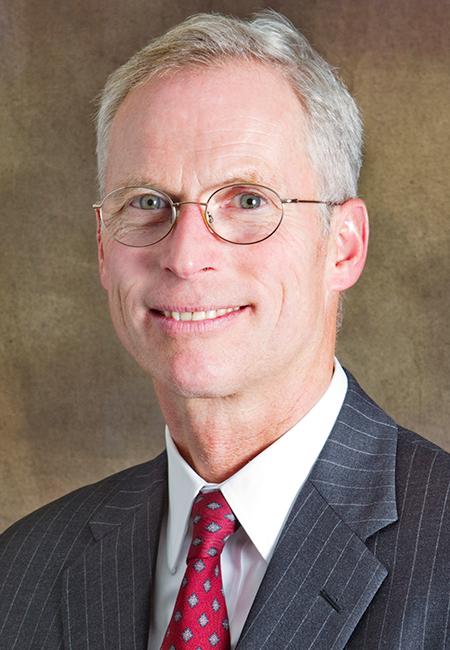
“Oh, come on, labor relations people never become presidents,” Johnsen recalls saying. Still, a seed was planted. When Johnsen became a vice president, he decided it was time to pursue a doctorate at Penn GSE. Today, as president of the University of Alaska, he oversees fifteen campuses thousands of miles apart with an enrollment of 35,000 full- and part-time students. Johnsen finds himself making tough choices while aiming to create economic opportunity.
“We’re in a major fiscal crisis in Alaska,” he says. The state and its university system are in desperate financial straits as revenue from the state’s bread-and-butter oil industry declines. For the 2017-2018 fiscal year, the state legislature cut $8 million from the university system’s budget.
In addition, Alaska suffers a large educational attainment gap. Johnsen says a quarter of the jobs in the state require a bachelor’s degree, and 40 percent an associate’s or certificate. “The state is producing about fifteen percent of those,” he says. “We import our talent. For example, the majority of the state’s K–12 teachers come from outside of Alaska.”
“I developed a set of habits and ways of analyzing the issues leaders encounter.”
Johnsen seeks to close the gap through his Strategic Pathways initiative, which grew out of his research at Penn GSE. “I developed a set of habits and ways of analyzing the issues leaders encounter,” Johnsen says of his experience in the Executive Doctorate program. “I really wanted to enable myself to be effective if one day I was going to be president.”
Through Strategic Pathways, Johnsen has brought together faculty, staff, and community members to identify ways to improve all aspects of UA—with less money. He is now implementing some of the hundreds of suggestions generated, working to consolidate procurement offices across campuses and schools, cut or suspend fifty degree programs, and reduce employees. Future phases will focus on online learning and partnerships with community colleges.
“It was bumpy at first,” he says of the implementation. “I learned more about leadership. I go back to some of the readings I did at Penn GSE to ground myself and even find solace as I deal with these challenges.”
Advancing Historically Black Colleges and Universities
Colette Pierce Burnette, GRD ’15, left a lucrative career in engineering to find her purpose in higher education. As president of Huston-Tillotson University in Austin, Texas, she is committed to the purpose of Historically Black Colleges and Universities (HBCUs) in American education.
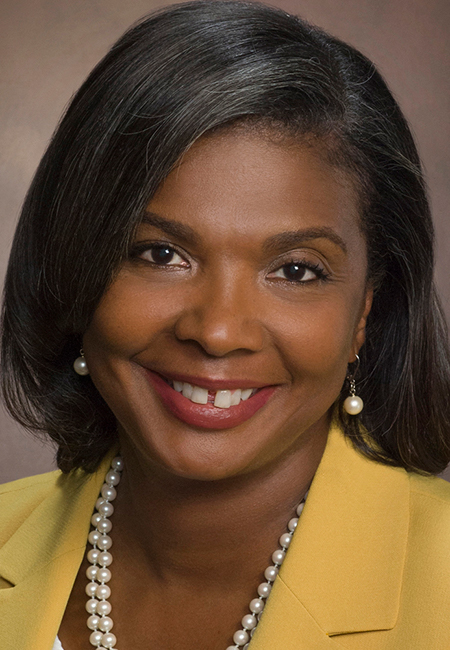
“The mission of HBCUs is more important than ever,” says Pierce Burnette, the first female president and CEO of Huston-Tillotson since the previously separate Samuel Huston and Tillotson colleges merged in 1952, and the second female president in the institutions’ 140-year history. “HBCUs give people of color an opportunity to be in a space where their peers see them simply as students, not students who are different,” she says.
As an engineer, Pierce Burnette worked at a variety of companies, including Procter & Gamble and her own computer networks business.
“But I was never quite fulfilled,” she says. She turned to education, teaching computer science at a community college and eventually joining an HBCU, Central State University (CSU), in Wilberforce, Ohio, as director of information technology. There she rose through the ranks to vice president of administration and CFO, earning a track record by tripling enrollment, boosting morale, and introducing best practices to save hundreds of thousands in the budget.
“The mission of HBCUs is more important than ever.”
Eager to take on a presidency, she knew she lacked one qualification. “I had street credibility, but I didn’t have the doctorate,” she says. In the Executive Doctorate program at Penn GSE, Pierce Burnette says, she worked harder than ever before. “You may think you’re going to school once a month,” she says, referring to the sessions on campus, “but really, you’re going to school every day.”
Her doctoral thesis on Wilberforce University, the first college to be owned and operated by African Americans, reinforced her staunch support of HBCUs. Networking with her fellow students brought her to her current role.
As president, Pierce Burnette has worked to build community on campus and partnerships with the surrounding city of Austin. She has also grown Huston-Tillotson’s adult degree program, which includes tracks in business administration, education, liberal arts, psychology, and criminal justice. “It is designed for working adults whose access to higher education may be otherwise limited due to personal, financial, and professional responsibilities,” she says.
That kind of opportunity is at the heart of HBCUs, she notes. “College gives people choices,” she says. “HBCUs are an investment in the future.”
Proving the Value of Online Education
Having served in CFO and CEO roles at health care companies for over sixteen years, Wallace “Wally” E. Boston, GRD ’10, became intrigued by American Public University System (APUS), a for-profit, online school based in Charles Town, West Virginia.
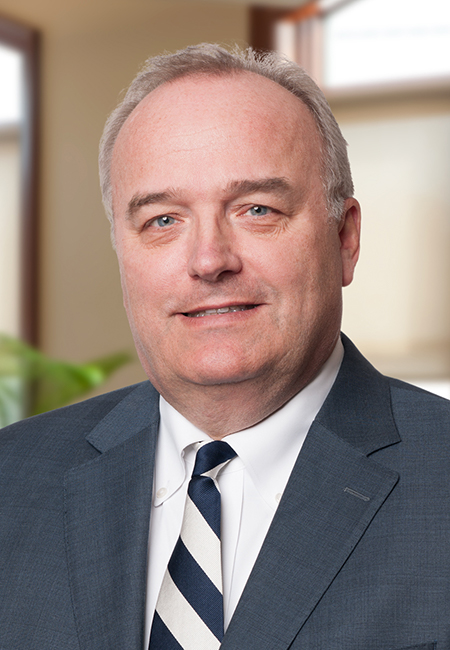
“I was fascinated by the challenges of online programs,” says Boston, a member of the Penn GSE Board of Overseers and the 2015 recipient of the Penn GSE Alumni Association’s Helen C. Bailey Award. “No one outside the online education community understood that you could provide a great education online.”
In 2002, he joined APUS as CFO. By 2004 he was president of APUS and CEO of its parent company, American Public Education Inc. (APEI). The majority of APUS’s 85,000 students are active-duty military, law enforcement, and emergency management professionals. To meet their needs, APUS offers flexible class schedules and monthly semester start dates. The university also makes affordability a priority, charging about $250 to $280 per credit hour.
Under Boston’s tenure, APUS has received regional accreditation and approval for Title IV federal student aid and added doctoral programs in strategic intelligence and global security. “I’ve worked to keep us at the forefront and build a reputation of quality,” he says. APUS won the Online Learning Consortium’s Ralph E. Gomory Award for Quality Online Education in 2009 and has earned other accolades since.
“I was fascinated by the challenges of online programs.”
While president and CEO, Boston enrolled in the Executive Doctorate program at Penn GSE. He wrote a dissertation about student retention in online education at a time when little had been published on the topic. Based upon APUS student data, his research spawned a multi-institution study funded by the Gates Foundation.
Boston notes that among undergraduate students who complete five courses at APUS, the university’s graduation rate jumps from 48 to 78 percent. “If we can engage students enough or just get them comfortable being educated online, we have a really good graduation rate,” he says.
Boston envisions a future where college costs will make the first two years of a four-year degree a commodity and online programs will have the price advantage. “I think the current business model for higher education is broken,” he argues. Only highly selective schools, he says, can continue to charge top prices.
Now president emeritus of APUS, Boston remains CEO of APEI. He reports that in a world of MOOCs and cyberschools, distance learning has gained respect. “I haven’t had to argue the value of online degrees in years,” he says.
Preparing Leaders to Serve the World
When Silvia Castro, GRD ’10, graduated from Georgetown University and returned to her native Costa Rica, her career took off. After just six months as international office director at Universidad Lationoamericana de Ciencia y Tecnología (ULACIT), a private, bilingual university in San José focused on science and technology, she became the university’s student affairs director, supervising job placement, financial aid, and counseling programs.
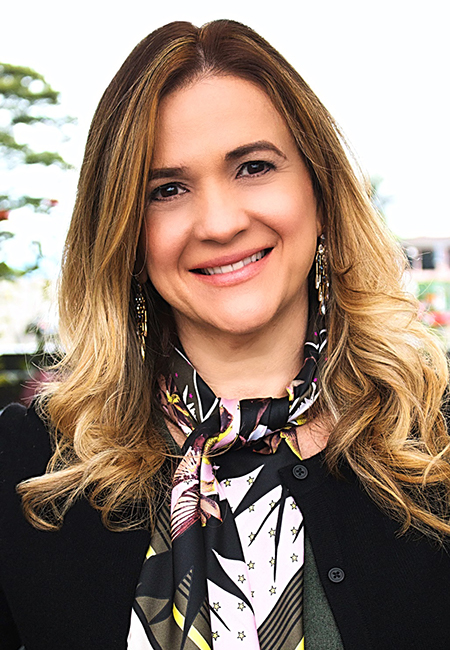
She continued to rise quickly to academic vice president, and earned a master’s in school leadership from Universidad Francisco de Vitoria in Madrid. In 2000, Castro became president of ULACIT. She was twenty-eight years old and just five years out of college.
“I would basically train people and move on,” says Castro, who grew up in a family of educators. “I organize. I fix it, and it works on its own.”
Seeking to step back and gain perspective on her field, Castro came to the Executive Doctorate program at Penn GSE after earning a master’s in education from Harvard.
“I had done management, but I didn’t understand it theoretically,” she says. Her thesis at Penn GSE, Castro says, was the first data- driven look at Costa Rica’s higher education system. Unlike in the United States, Costa Rica’s public institutions are generally more selective than private ones. Her study concluded that public universities primarily served the wealthy, while private institutions served the poorest, often without the financial capacity to fulfill appropriate standards of educational quality.
“I have a lot of faith in the nontraditional.”
“It caused a sensation when it was published,” she says. “It’s a highly politicized issue.” What she learned helped her to position ULACIT as a selective private college with a focus on preparing leaders to serve the world. Approximately 30 percent of its students are low-income and supported by merit scholarships. For the past six years, QS Latin American University Rankings has placed it at number one for private universities in Central America.
The college uses only project-based learning, which emphasizes student-centered projects. It has a scholarship program, student services, and eighteen student clubs.
“Those are things that hadn’t happened before Penn GSE,” says Castro, whose current role as rector encompasses the functions of president and provost. “I was able to adopt a lot of concepts and ideas from faculty, from discussions.”
Castro says the format of the Executive Doctorate program—designed to fit the schedules of working professionals—served her and her classmates well. “Penn GSE didn’t sacrifice quality for format,” she says. “I have a lot of faith in the nontraditional.”
This article originally appeared in the Fall 2017 issue of The Penn GSE Magazine.

